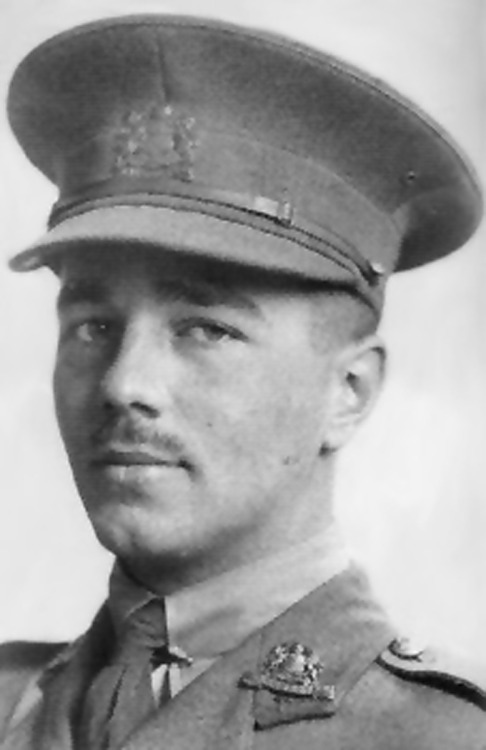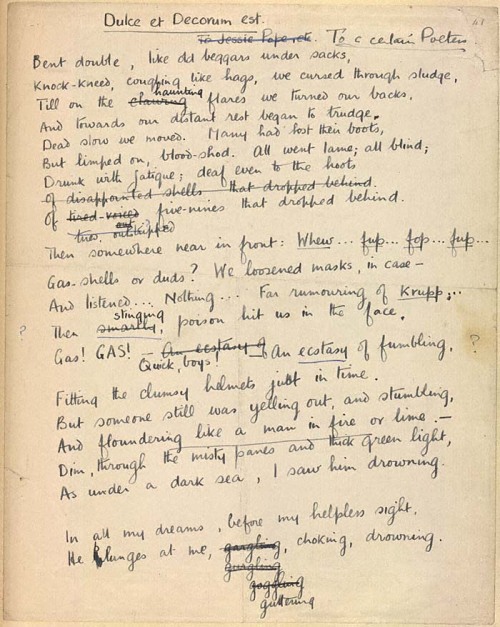todayinhistory: November 4th 1918: Wilfred Owen dies On this day in 1918, the English poet and soldi
todayinhistory:November 4th 1918: Wilfred Owen diesOn this day in 1918, the English poet and soldier Wilfred Owen was killed in battle. Owen was born in Shropshire in 1893 and is best known for his poetry depicting his experiences in the First World War, especially the horrors of trench and gas warfare which he experienced first hand. His grim portrayal of war was contrary to the optimistic public perception popularised by patriotic poets like Rupert Brooke and by the government in order to maintain morale. Owen was good friends with fellow World War One poet Siegfried Sassoon whom he met whilst they were both in hospital for shell shock. Perhaps Owen’s most famous poem is ‘Dulce et Decorum Est’; in the last lines of this poem Owen laments the “old lie” of the dictum “Dulce et decorum est pro patria mori” which is Latin for ‘How sweet and honourable it is to die for one’s country’. Owen was killed in battle in 1918 aged 25 exactly one week before the signing of the Armistice. He was outlived by his friend Sassoon who died in 1967. This year when we commemorate the centenary of the outbreak of the First World War, especially with Remembrance Day approaching in one week, we must remember Owen’s haunting words and understand the horrors these soldiers experienced.My great-great grandfather was wounded at about the same time as Wilfred Owen, in the final weeks of the war. He died of his wounds in military hospital three months later, February 1919 - so close to making it home, but he never got there. -- source link
#history

